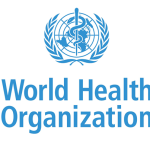Exclusive Data Reveals Wegovy Fueling Sharp Rise In Use Of Weight-Loss Drugs For U.S. Youth

The usage of Novo Nordisk’s weight-loss drug Wegovy among adolescents in the United States has shown a significant increase, according to exclusive data shared with Reuters. The data, compiled by health technology company Komodo Health, reveals that in the first ten months of 2023, 1,268 adolescents aged 12 to 17 were prescribed Wegovy for obesity treatment, marking a sharp rise from just 25 prescriptions in 2022. This surge follows the drug’s approval for adolescent use in December 2022 and a subsequent recommendation from the American Academy of Pediatrics.
Additional data from Medicaid records in five states corroborate this trend, with at least 464 children prescribed Wegovy since January 2022. However, these numbers are still relatively small compared to the estimated 14.7 million U.S. children with obesity. Despite this, the data suggests a growing acceptance of Wegovy among families as a potent tool against pediatric obesity, despite concerns about its long-term risks and costs.
Dr. Suzanne Cuda, a medical director at Alamo City Healthy Kids and Families in San Antonio, Texas, expressed a preference for using such medications in adolescents to prevent disease rather than treating it as a rescue operation. Obesity is associated with severe health conditions such as diabetes, heart disease, and cancer, underlining the importance of early intervention.
While Novo Nordisk’s Saxenda has been prescribed to adolescents in prior years, its uptake has been overshadowed by Wegovy’s effectiveness. A case in point is Billy Small III, a 15-year-old who started Wegovy in March 2023 and has since lost significant weight with minimal side effects, improving his quality of life.
Both Novo Nordisk and Eli Lilly are conducting trials of their weight-loss drugs in younger children, potentially widening the scope of treatment options. However, some medical experts caution against the widespread use of such medications in the absence of sufficient evidence about their impact on children’s development.
Given the global epidemic of obesity, the U.S. stands alongside a few countries in exploring new weight-loss drugs for youth. The outcomes of these efforts could offer insights for health authorities worldwide. Nonetheless, concerns persist about the long-term efficacy and safety of these medications, with the U.S. Preventive Services Task Force advocating for intensive counseling and behavioral therapy as primary interventions for pediatric weight management.





